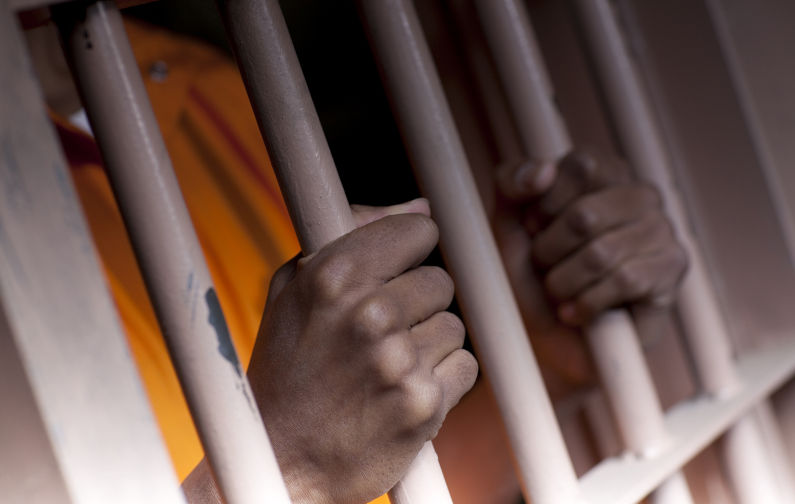Australia's love affair with imprisonment
May 13, 2024
The latest statistics from the Australian Bureau of Statistics paint a grim picture of a nation becoming more and more entangled in the web of incarceration. During 2022-23, the total number of people behind bars surged by three percent, accompanied by a one percent rise in the imprisonment rate. These figures not only reflect a disturbing trend but also confirm that this country has a love affair with imprisonment.
When examining the figures, what is unsurprising, but particularly alarming is the disproportionate impact on First Nations people, whose representation in prison swelled by seven percent. This surge outpaced the general population increase, resulting in a staggering five percent rise in the imprisonment rate among Indigenous people. With 2.4 percent of the First Nations adult population now incarcerated, constituting a third of the prison populace, Australia faces a stark indictment of its so-called criminal justice system’s failure to address systemic inequities.
Amidst these troubling statistics, it’s crucial to examine the underlying narratives perpetuated by political rhetoric. Despite the mounting evidence of the human cost of mass incarceration, major political parties at the state level persist in engaging in “tough on crime” bidding wars. Promises to lock up more people for longer durations echo across political platforms, further exacerbating an already burgeoning crisis. We are experiencing this right now, as the nation considers ways to address the scourge that is family and domestic violence.
Why does Australia cling so tightly to the notion of punishment and imprisonment as a panacea for social problems? The National Network of Incarcerated and Formerly Incarcerated Women and Girls (The National Network) argue it’s a reflection on societal anxieties, ingrained prejudices, and a lack of imagination when it comes to envisioning alternative approaches to safety and justice for all. Imprisonment is simply in this country’s DNA. The prevailing narrative of punitive measures as the primary response to so-called crime overlooks the complexities of human behaviour and what it takes to create safe and well communities, and neighbourhoods that thrive in abundance.
Moreover, the discourse surrounding incarceration often sidesteps uncomfortable truths about the conditions within prisons themselves. Contrary to the sanitised image presented by those who argue for more punitive measures, is the fact that prisons are not safe havens. In reality, they are violent places that peddle in despair, and tragically, too often, death. The National Network has spent this week, bearing witness alongside the Tafaifa family while they seek justice and accountability for the death of their mother/sister/daughter/grandmother, Selesa Tafaifa, a Samoan woman who died in custody after being handcuffed and spithooded. Selesa’s case serves as a grim reminder of the brutal realities that pervade Australia’s prison system – this system kills, and with impunity.
Selesa’s death should underscore change – comprehensive change that reverses the trajectory of mass imprisonment, change that addresses systemic failures that perpetuate harm, change that addresses colonial violence which criminalises some, while upholding and elevating others. From inadequate healthcare provision to endemic violence, the shortcomings of Australia’s prison system are laid bare for us all to see, and the answers are obvious, because we cannot continue along the treadmill of reform. We can’t keep saying that jailing is failing. We must reckon with the fact that we are doing this to some very deliberately, and if we truly want safety for all, it is time for a radical reimagining of justice in this country.
The mass incarceration of Indigenous people is not merely a statistical anomaly but a manifestation of historical injustices, colonial violence and ongoing systemic discrimination. Decades of colonial oppression, dispossession, and marginalisation have ensured Aboriginal communities are criminalised by the colonial carceral state – prisons are a colonial frontier. Until Australia confronts these underlying structural inequalities with genuine resolve, the cycle of disproportionate Indigenous imprisonment will persist unabated.
In light of these sobering realities, and the continual upsurge in the number of people imprisoned in this country, it is imperative for Australia to heed the call for transformative change. Rather than doubling down on failed punitive measures, policymakers must embrace a paradigm shift towards abolitionist thinking. We must focus on adequately investing in communities so that we can build capacity, with a focus on abundance and care, not scarcity and harm. Simply, this country cannot continue to respond to violence and harm with more violence and harm and expect a good outcome.
By abolishing the punishment system, and other systems of surveillance and control, and instead fostering environments conducive to healing and growth, Australia could chart a course towards a more just and compassionate society. For abolition to occur, we cannot simply just replace prisons with another ‘more humane option’, or cut the corners off the current system. As Marianne Kaba says, we need ‘one million experiments’ – a million community-based projects that expand our ideas about what keeps us safe. We must de-centre the prison industrial complex, and start to centre our communities, our neighbourhoods and our people. We need to stop disposing of people, warehousing them in cages, expecting them to come out reformed and rehabilitated after brutalising and harming them.
The rise in Australia’s prison population serves as a stark indictment of this nation’s misguided love affair with prisons and punishment. It is time for Australia to acknowledge the inherent flaws in its punitive approach to justice and the brutality and too often fatal nature of prisons. We have the opportunity to embrace a more compassionate, evidence-based approach that prioritises the dignity, well-being and safety for all our citizens, rather than just the few. Abolishing prisons is the only way to pave a liberatory pathway for us all.
If you do what you’ve always done, you’ll get what you’ve always got, therefore it makes sense to just do something different. Without dreaming of a new future, and actively taking steps to carve one out, we will not be free of the bonds that bind us.
